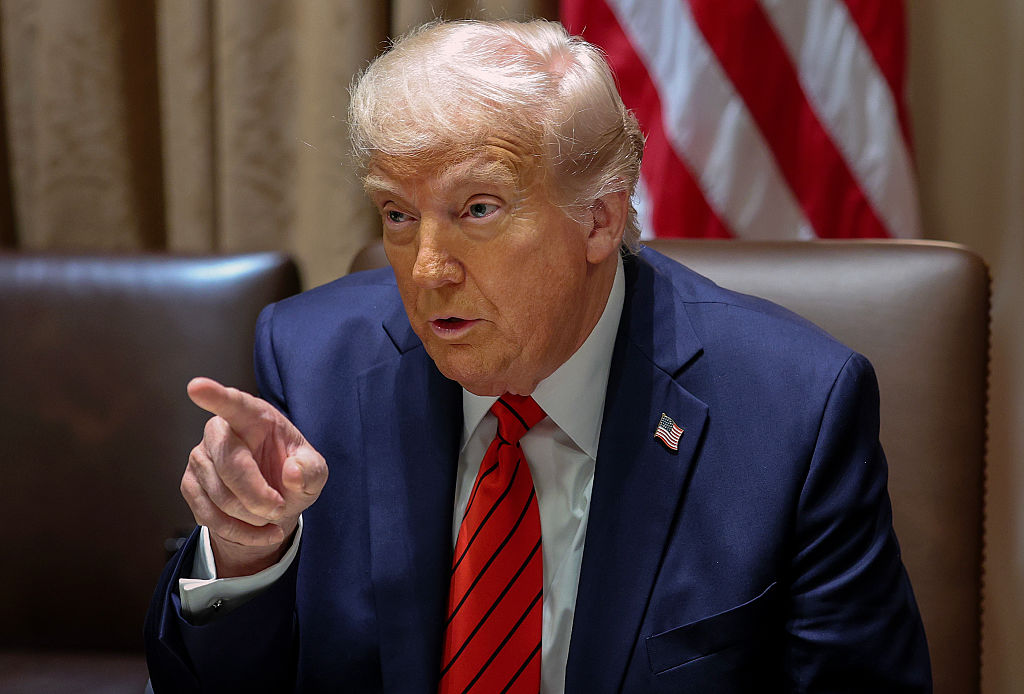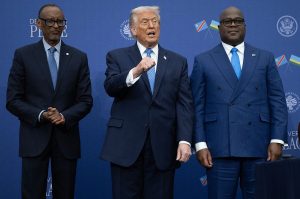Cynics will scoff at Donald Trump’s latest initiative: issuing an executive order forcing pharmaceutical companies to lower the prices of medical drugs used by US patients by between 30 and 80 percent.
The President wants to impose what he calls a “most favored nation” rule, under which drugs companies would be allowed to charge US consumers no more than they charge in the lowest-priced country where they sell their product. That could have serious consequences for campaigns to fight disease globally, given that cheaper versions of drugs are often sold in developing countries which might not otherwise be able to afford vaccination programs and the like.
Isn’t Trump supposed to be against price-fixing? That’s what he said during the election campaign, at any rate, criticizing Kamala Harris for proposing price controls. Moreover, Trump is simultaneously trying to slap tariffs on pharmaceutical imports – as on just about everything else. If you are trying to bring down the cost of something, why follow a policy that is sure to inflate prices?
All this said, there is something quite outrageous about drug prices in the US. A government study last year concluded that the prices of drugs were 2.78 times as high as in comparable countries. For branded drugs, it was even higher, at 3.22 times as high. The US market is giving patients a very bad deal – and drugs companies a very good one. Whatever you think about socialized healthcare – and it has many opponents, as we found out when Barack Obama tried to create something approaching a European-style public healthcare system – state-backed healthcare systems do have an advantage in that they possess enormous monopoly powers which they can employ to negotiate down drug prices. High drug prices in the US are a large part of the reason why American healthcare is so expensive compared with other developed countries.
However, while low drug prices provide an obvious advantage for patients in the short term, they are not necessarily to everyone’s benefit in the longer term. It takes vast sums to develop new drugs – all the more so thanks to growing regulation of drug trials and the inevitable lawsuits when new drugs turn out to have serious side effects. The money to develop new drugs has to come from somewhere – and that somewhere, ultimately, is the public, either through direct healthcare costs, insurance premiums or, in countries like the UK with well-developed public healthcare systems, through taxes.
At present, US healthcare patients are effectively subsidizing those in the rest of the world by paying more for their drugs. They are helping to fund the development of treatments which – if the world’s healthcare were provided entirely through state monoliths like Britain’s NHS – might never be developed. It would be a bad outcome for everyone if pharmaceutical companies were starved of the cash they need to invest in new drugs.
As for the US pharmaceutical industry itself, it blames middlemen for high drug prices. The industry’s trade body, PhRMA, has declared that if the Trump administration wants lower drug prices, “we should address the growing share of medicine costs going to middlemen in the system.” Either way, through his latest initiative, Donald Trump has shown an instinct against free markets. That a Republican president should pursue a policy of price-fixing demonstrates how much the political ground is shifting – with consequences for all kinds of industries. Compared with the past 40 years, advocates of the free market are finding themselves frozen out in the cold.


























Leave a Reply